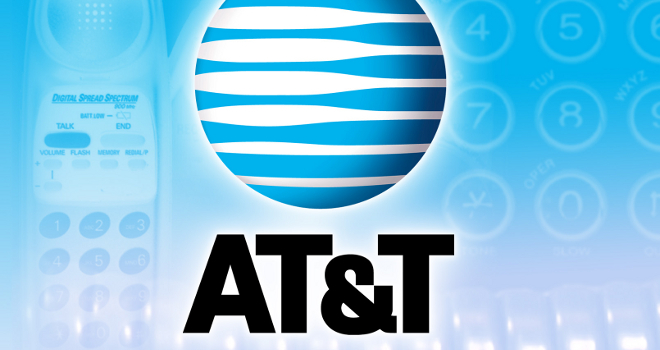Consumer advocates say recent moves by AT&T to adjust its mobile pricing structure should call into question the company’s efforts to win approval of an acquisition of T-Mobile.
AT&T, currently the second largest U.S. mobile provider behind Verizon, would integrate number-three T-Mobile into its network.
The merger is already under intense scrutiny. The telecom giant recently created a stir when some inadvertently-released numbers surfaced at the Federal Communications Commissions’ web site last week. The numbers showed that AT&T was only willing to complete its rural buildout of its next generation LTE wireless network if the T-Mobile acquisition were green-lighted.
It’s an argument that has won the merger support from many lawmakers, but critics charge that AT&T hoped to do something far more mundane — squash the competition.
AT&T again hit the news this week for its new texting plan. New users to its service will be charged either a $.20/message flat fee or signed up for a $20 a month unlimited texting plan. Current subscribers pay $10 a month for 1,000 texts.
Tech pundits already have choice words — “outrageous, gigantic scam,” for instance– about the idea that the tiny packets of data we know as text messages should justify the comparatively enormous cost-per-kilobyte.
“This move is simply another example of AT&T passing off a price increase for consumers as a benefit. If this were a truly competitive market, AT&T would offer its customers more choice and value, and no carrier would get away with a 10-million-percent markup on its services,” charged S. Derek Turner, research director of the telecommunications watchdog Free Press said in a statement.
Turner was referring to a rough calculation that the amount of data sent in a text message would cost millions of times less if charged as mere “data” like an e-mail or a web site.
“This should serve as a warning to the Department of Justice and the Federal Communications Commission,” Turner added. “If AT&T is already able to unilaterally increase prices, allowing the company to eliminate low-cost competitor T-Mobile will only make things worse.”
Claudia Jones, an AT&T spokesperson, shot back: “By now, everyone should be used to how Free Press twists, manipulates, or makes up facts.
“This is a radical anti-corporate group with an extreme agenda,” she added. “They have no expertise in any of the matters on which they routinely opine. Free Press has never created a single job save their own, nor invested a nickel in growing the US economy. It is laughable that they would claim expertise in how corporations should spend billions, much less how to build a modern network of any type. In short, this is not a group whose views should carry any weight with policymakers.”
Nevertheless, from the customer perspective, T-Mobile is a viable alternative to AT&T for now if you have a phone based on the GSM standard and if texting is a big part of the way you communicate.
If AT&T succeeds in acquiring T-Mobile, however, users are left with one less choice.
The merger would create the largest mobile provider in the United States with a market share of 42 percent, according to a report by Chetan Sharma Consulting. Verizon, currently the leader, would be second at 34 percent. If Sprint’s 17 percent is added, the top three providers would control 93 percent of the market.
Competition in the mobile phone market is already in the eyes of the beholder. With phones locked to individual providers and a two-year contract standard for new subscribers, many users have no viable way to switch.
Let us imagine, however, the situation for an otherwise average U.S. mobile customer who happens to be free of a contract and own a GSM phone, compatible with both AT&T and T-Mobile.
The average U.S. mobile phone customer uses 664 texts per month, according Chetan Sharma. Under AT&T’s changed rate structure, he or she would end up paying considerably more.
Whereas today’s cost for 1,000 messages on AT&T is $10, the new cost for 664 at 20 cents per message would be $132.80. Thus the consumer’s only reasonable option is to purchase the new, $20 unlimited plan: In essence the charge to the average user has doubled.
At present, T-Mobile offers our imaginary user an alternative without buying a new phone. With T-Mobile, the difference between a “Classic 500 Minute” plan with no text plan and one with unlimited texts is $10. For a stripped down plan, the difference is only $5.
From this point of view, AT&T proposes to charge between two and four times as much as T-Mobile for unlimited text messaging.
Responding to the critics, AT&T’s Jones said: “The vast majority of our messaging customers prefer unlimited plans and with text messaging growth stronger than ever, that number continues to climb among new customers.”
She added: “Existing customers don’t have to change any messaging plan they have today, even when changing handsets.”
She added that T-Mobile customers will be able to keep their rate plans, and that “they will be able to do so for as long as they want to, even when upgrading to a comparable device, or even when their terms end and the service continues on a month-to-month basis.”
Some emerging services may end up offer users a competitive alternative.
Services like Google Voice and Apple’s upcoming iMessage feature for the next version of its mobile operating system iOS could both potentially free users from high text message rates.
Graham Webster is a journalist, consultant, and researcher working on technology and politics in China and the United States. Now based in New York, he has lived and worked in Beijing, Tokyo, and Washington, D.C. Follow him on Twitter.
Have an idea or story tip? Please send thoughts to: idealab@talkingpointsmemo.com.
Get the day’s best political analysis, news and reporting from the TPM team delivered to your inbox every day with DayBreaker. Sign up here, it takes just a few seconds.






